Not only is seasoning and maintenance simple, but these pans are tough, making it difficult to damage them. We wanted to clear up some of the most common cast iron myths so you can do more cooking without harbouring any doubt..
- Myth1: Can cast iron cookware make you sick?
- Myth2: Seasoning Cast iron does not mean seasoning your food
- Myth3: Don’t use soap while washing cast iron.
- Myth4: It’s done! if rusted
- Myth5: Cast iron cookware can have wooden handles
- Myth6: Can cast iron cookware cause Alzheimer's?
- Myth7: Cast Iron cookware with ceramic coating is better than uncoated cast iron?
- Important tips
Can cast iron cookware make you sick?
This is one of the most commonly asked questions about cast iron as cast iron cookware is known to leach iron into food during the cooking process. However, cooking in cast iron does not actually make you sick, in fact, they may be very helpful if a person is suffering from iron deficiency, when diet is poor or when the iron is not absorbed well.
Seasoning Cast iron does not mean seasoning your food
Seasoning your cast iron does not imply putting salt and pepper on it. The process will not add any taste to your dish. Simply said, it means coating the pan with a layer of oil (smoked out after heating), which gives it non-stick characteristics and prevents rusting.
Even though seasoned cast iron does not impart flavour itself, this belief is probably since seasoned cast iron sears effectively, making food taste better. Consider how crispy potatoes are, golden chicken skin, and a great crust on steaks.
Don’t use soap while washing cast iron.
One of the most prevalent misconceptions about cast iron is that it can grime with food residue because it is a task to frequently clean it. Seasoning, like polymerized oil, does not wash away easily. Soap would not remove your season unless you are scrubbing harshly with steel wool.
Even though washing a pan in only hot water is perfectly safe, don't be hesitant to use the washing-up liquid as well - seasoning isn't nearly as delicate as you'd think. The cast iron's advantage is that the seasoning is restorable, so you may simply do it again if needed.
It’s done! if rusted
You've left your pan wet, and significant rust has appeared on it. Fear not - despite how some people may talk, rust is not the end of the world. Unless the pan is completely rusted through, there is nothing to worry.
Scrub the rust away with a steel wool pad until it is gone. You now have a blank canvas to preseason, which you can clean and dry simply. Any rusted old cast iron pans you come across can be restored. These pans are so robust that even years of abandonment will not destroy them.
Cast iron cookware can have wooden handles.
We know that plain cast iron handles heat up real fast and become extremely dangerous to handle without proper protection. A wooden handle or grip on a cast iron pan can protect the user from the heat and offer easier, safer handling when used on stove tops. However, wooden handles for cast iron cookware do have their cons, the first one being the moisture which cooks out the wood and causes shrinkage. A cookware with wooden handles will cause a real problem when you plan to season it as the whole cookware needs to be covered in oil and then baked in a heated oven – something you won’t be able to do because of the wooden handles. Therefore, top brands like ‘Meyer India’, provide you a cast iron cookware range that comes with a Monolith ‘One-piece’ design – no screws, no rivets, no weld joints. The range gives you safe handling of the cookware through specially designed removable canvas grip that covers the handle and protects the user from extreme heat.
Can cast iron cookware cause Alzheimer?
It is true that cast iron- Alzheimer’s link remains hotly contested as the cookware do leach, however research also shows that the amount of iron in a person’s brain appears unrelated to their iron intake or iron levels in the blood. Therefore, the whole theory of cast iron cookware causing Alzheimer appears to be just a myth as iron levels in the blood are not an indicator of Alzheimer’s risk.
Cast Iron cookware with ceramic coating is better than uncoated cast iron?
It is true that ceramic or enamelled cast iron might have its advantages like they do not rust and do not require seasoning, but this type of cookware also has some major drawbacks.
A ceramic cast iron cookware has a porcelain glass coating that is easily damageable if you so much as drop or bang your cookware, something you won’t have to worry about with your pre-seasoned non-coated cast iron cookware
Unlike a simple cast iron cookware, a ceramic cookware does not work well with metal tongs or turners as the coating can be chipped
Your regular cast iron skillet can be preheated to a searing heat, but a ceramic coated cast iron utensil will damage if pre-heated too hot
Important Tips
| Seasoning is the key to a long lasting and high-performance cookware | The most essential and required step is this. When you purchase a new piece, it usually comes with instructions on how to do so. Seasoning any cast iron utensil means preparing it for cooking and keeping it throughout the process. To improve bonding, heat it to a high temperature and coat it with cooking oil. This prevents rust build-up and lets the surface develop for cooking. The more you season and use your utensil, the more non-stick it becomes. Before using it, your utensil will require a few extra rounds of seasoning if it is a new purchase or has been used previously. Allow it to cool fully before repeating the seasoning process. |
| Clean it properly and avoid abrasive scouring pads | Cast iron pots and pans must be cleaned right away. Never leave it in the sink overnight or even in water for lengthy periods of time. This will result in corrosion and damage to the product. The simplest method to clean it is with a mild soap and a gentle scrubbing. Best avoided are abrasive scrubbers, which will erode the surface. If the surface is difficult to scrape off food, boil water in it to assist loosen any remnants. After washing, leave it to completely dry before storing it away. Next, rub a thin layer of oil all over it (both inside and out) to prevent rusting and store it in a dry location. Because the surface becomes quite hot, it's best to allow it to cool fully before washing it. Otherwise, the abrupt temperature change might cause the surface to fracture. |
| Weighs a lot and Handles get hot | Another thing to consider before purchasing this product is the weight and whether you can manage the weight. To transport it without burning your hands, use a mitt or a sleeve. Meyer provides a complimentary, excellent heat-resistant fabric sleeve or you can buy a silicone one from Meyer. |
Explore the entire range of Cast Iron here

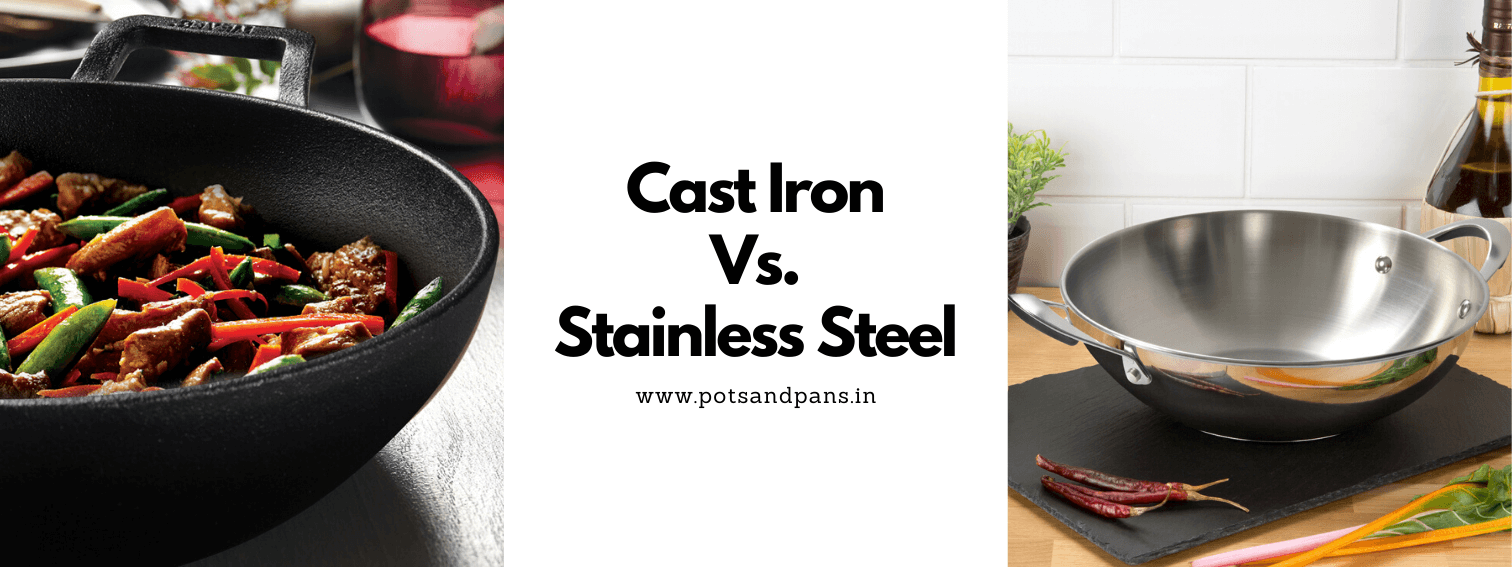
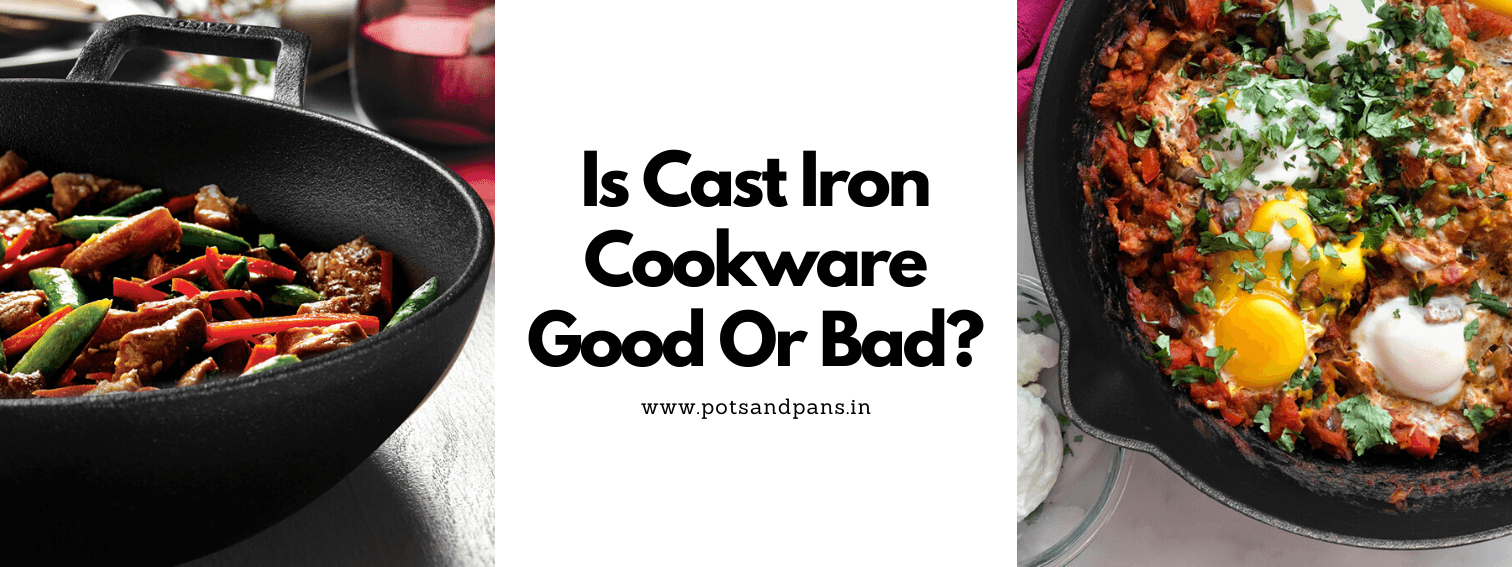
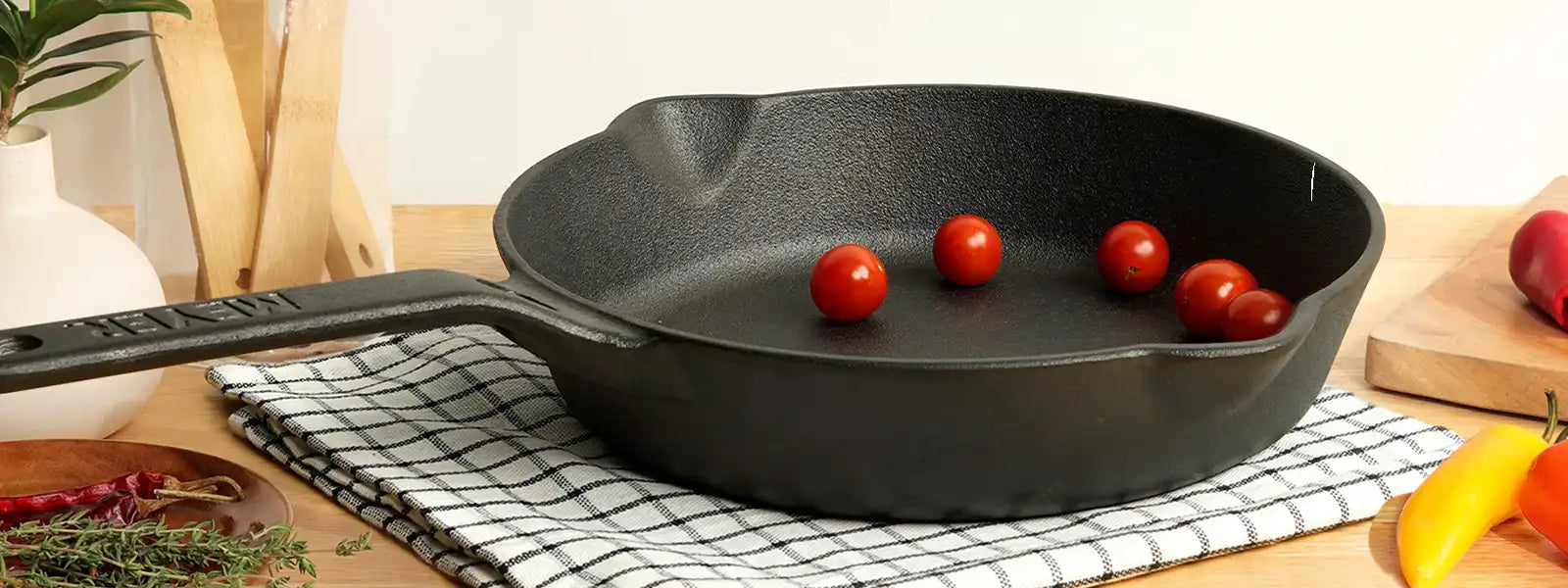
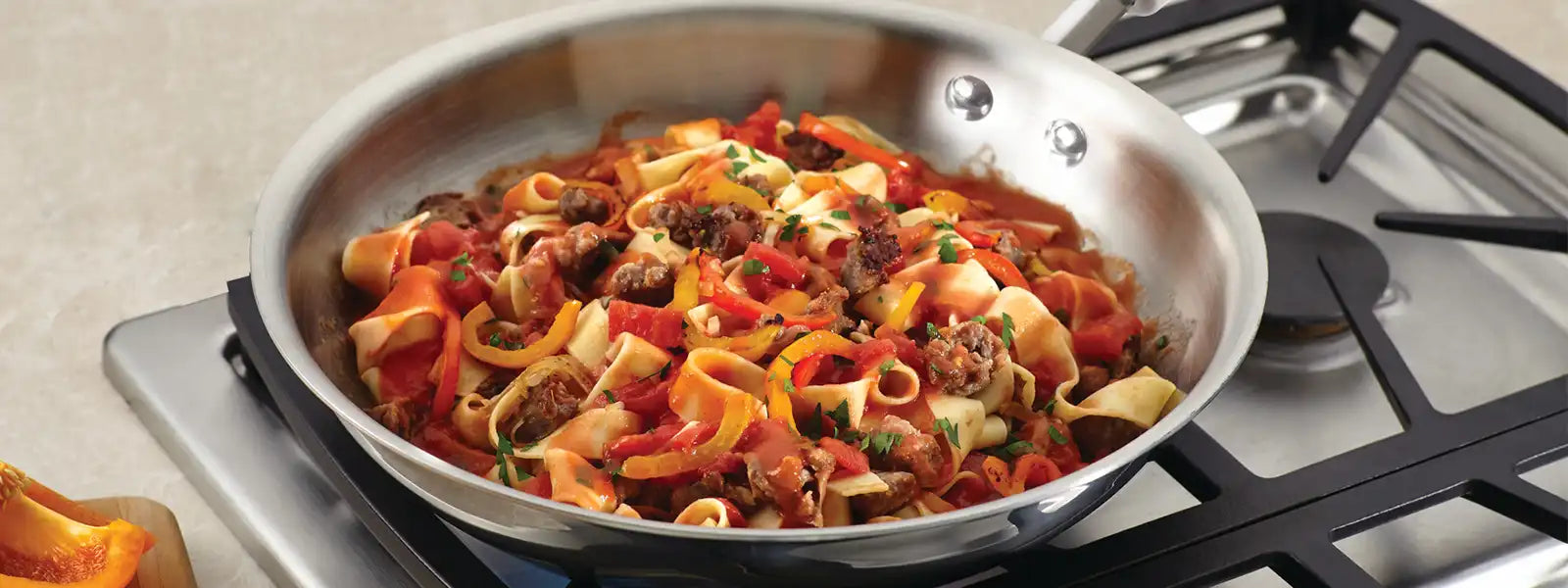
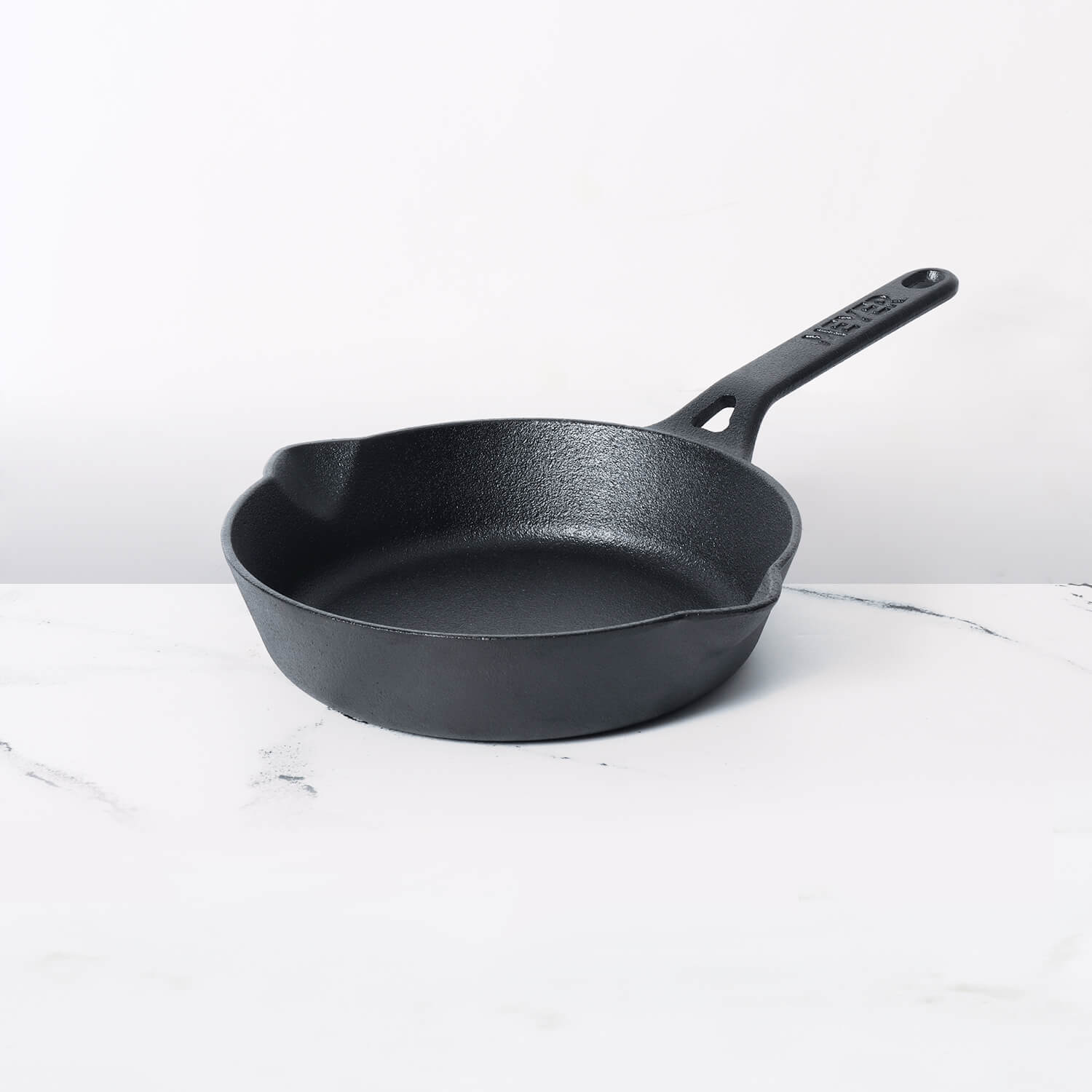
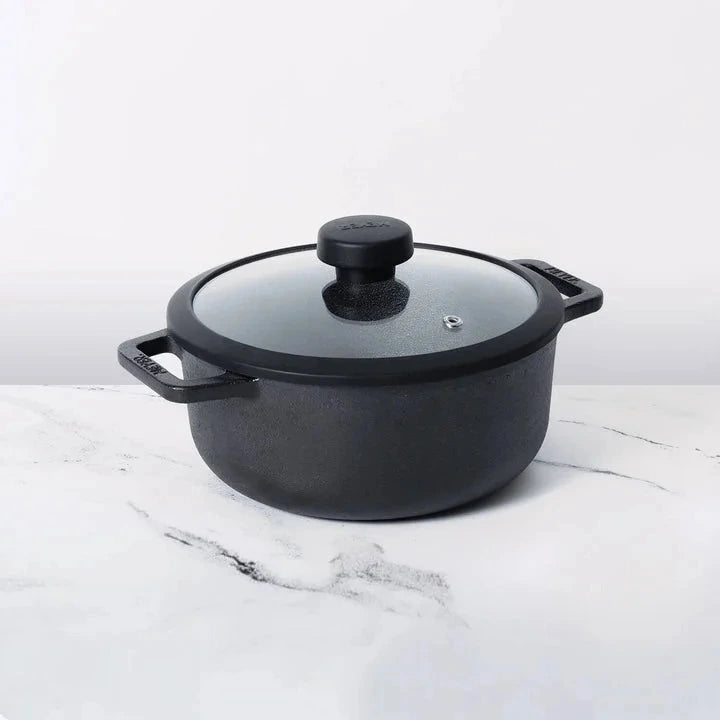




Leave a comment